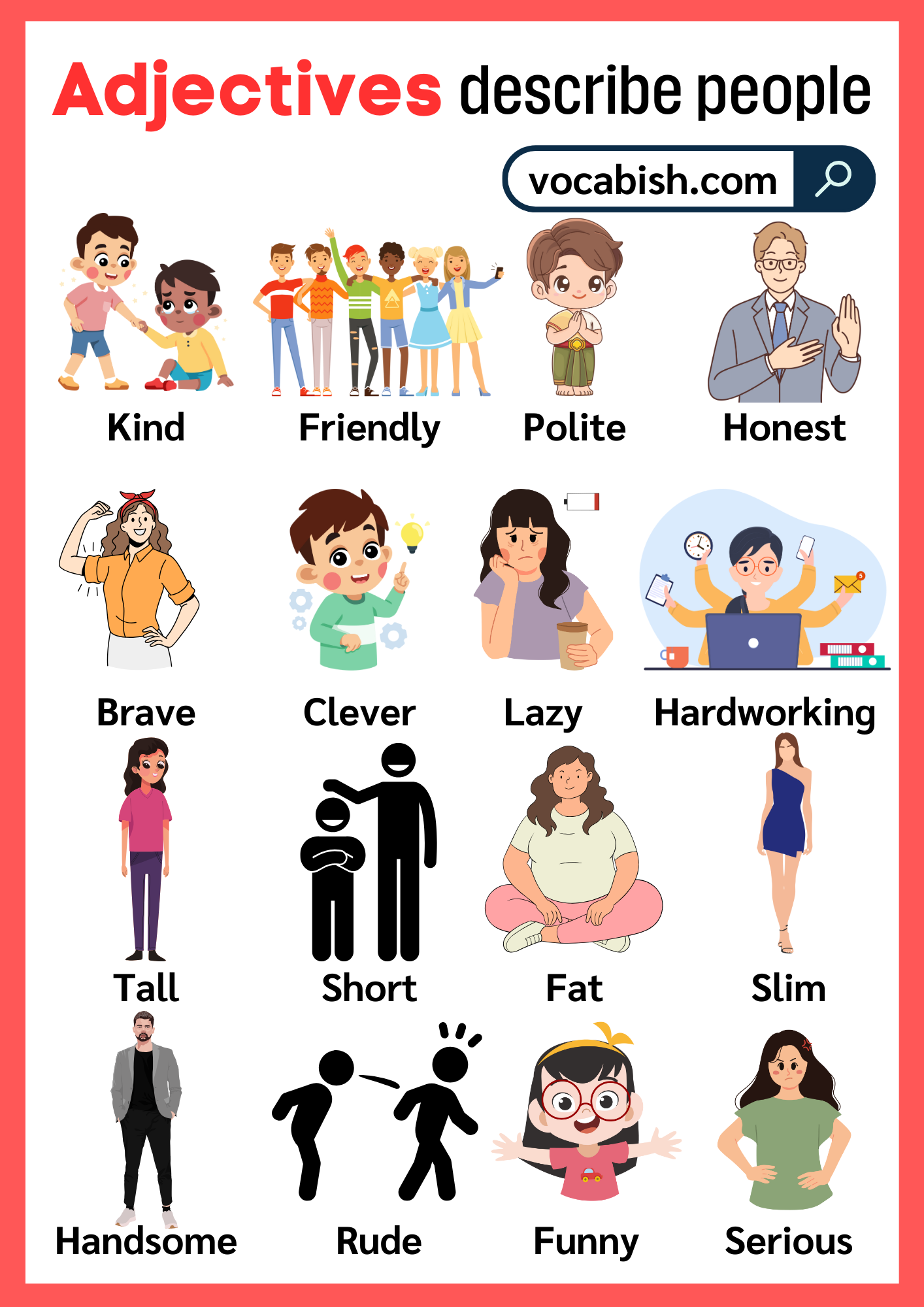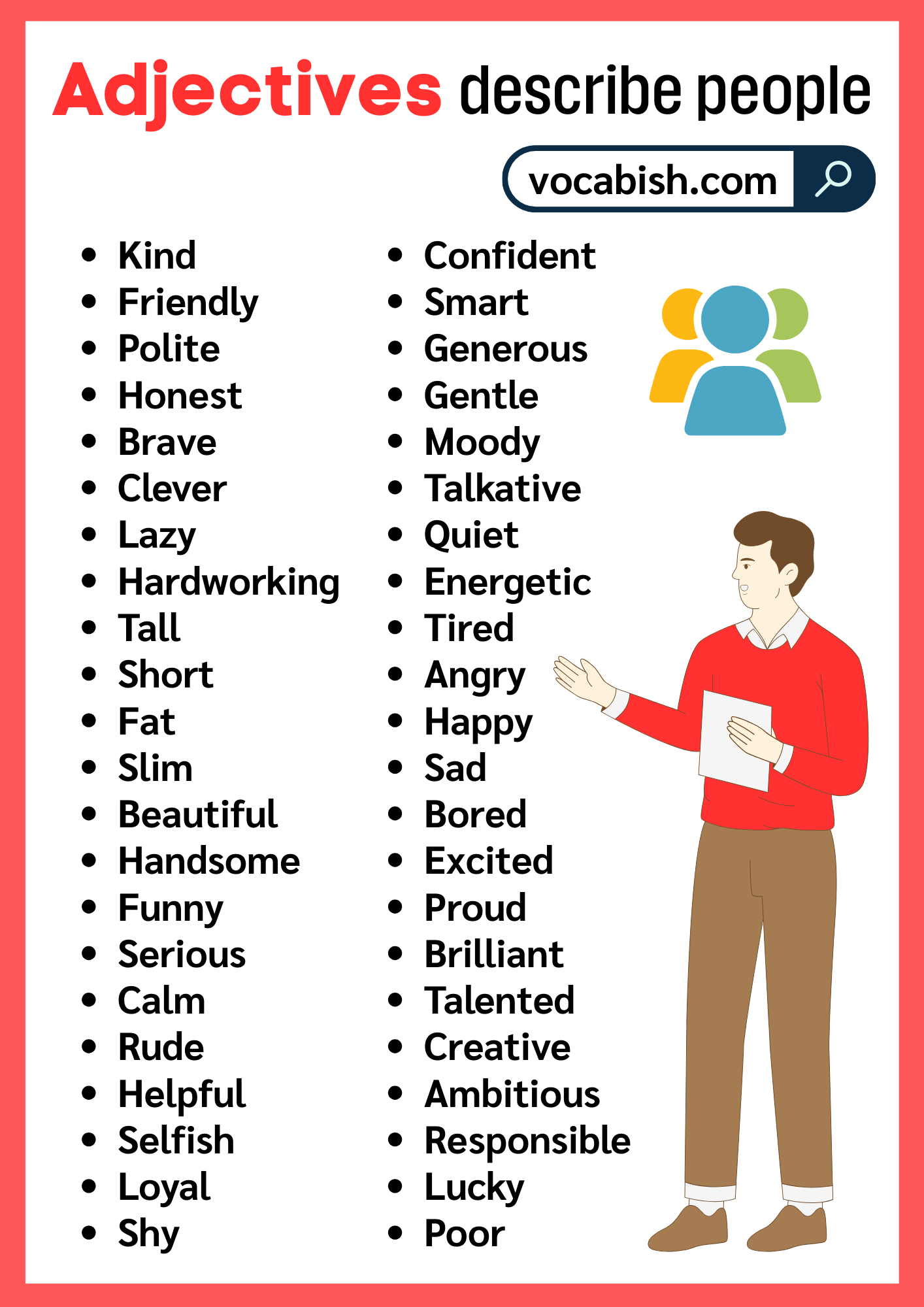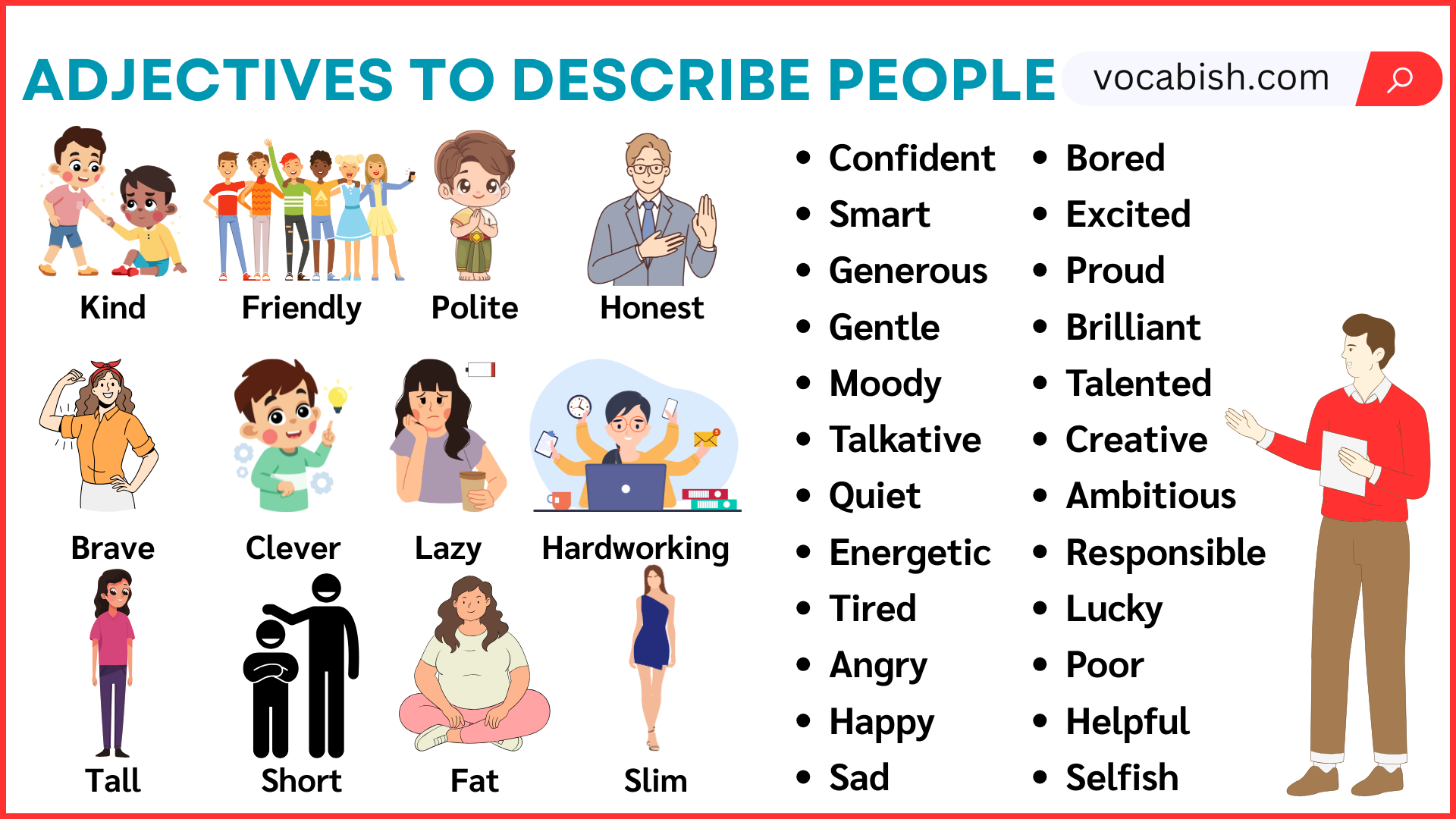Learning adjectives helps you describe people clearly and express yourself confidently in English. In this blog post, you will explore 50 basic adjectives to describe people, with examples to show how to use them in sentences. Understanding these words improves your speaking, reading, writing, and listening skills. By mastering adjectives for personality, appearance, and behavior, you can communicate effectively and make your English more descriptive and precise.
What are Adjectives to Describe People?
Adjectives are words we use to describe a person’s look, nature, or mood. They make our sentences clear and interesting.
Example:
- She is kind. (Describes her personality)
- He is tall. (Describes his appearance)
Where We Use These Adjectives?
Appearance – to describe how someone looks.
- Example: He is handsome.
Personality – to describe how someone behaves or thinks.
- Example: She is friendly.
Feelings – to describe emotions or mood.
- Example: They are happy today.

50 Basic Adjectives to Describe People
Below is the list of easy and useful adjectives with short example sentences.
- Kind – She is always kind to everyone.
- Friendly – Ali is friendly and talks to everyone.
- Polite – He is polite to his teachers.
- Honest – Sara is honest about her work.
- Brave – The soldier is brave.
- Clever – My brother is clever at solving puzzles.
- Lazy – He is lazy in the morning.
- Hardworking – She is hardworking in her studies.
- Tall – My uncle is tall.
- Short – My friend is short but active.
- Fat – The cat is fat.
- Slim – She is slim and healthy.
- Beautiful – This girl is beautiful.
- Handsome – He is a handsome boy.
- Funny – Ali is funny and makes jokes.
- Serious – She is serious about her job.
- Calm – He stays calm in problems.
- Rude – The shopkeeper was rude to customers.
- Helpful – She is helpful to her friends.
- Selfish – He is selfish and thinks only of himself.
- Loyal – Dogs are loyal animals.
- Shy – The boy is shy in class.
- Confident – She is confident about her skills.
- Smart – Ali is smart and quick to learn.
- Generous – My aunt is generous to the poor.
- Gentle – He is gentle with children.
- Moody – She is moody sometimes.
- Talkative – My sister is very talkative.
- Quiet – He is quiet in meetings.
- Energetic – They are energetic in sports.
- Tired – I feel tired after work.
- Angry – The teacher was angry with noise.
- Happy – She is happy with her gift.
- Sad – He is sad about the result.
- Bored – I am bored in the lecture.
- Excited – The kids are excited for the trip.
- Proud – She is proud of her son.
- Brilliant – He is brilliant at mathematics.
- Talented – Sara is talented in singing.
- Creative – Ali is creative in art.
- Ambitious – He is ambitious for success.
- Responsible – She is responsible at work.
- Lucky – He is lucky to win the prize.
- Poor – They are poor but happy.
- Rich – The man is rich and generous.
- Neat – Her dress is neat and clean.
- Messy – His room is messy.
- Strong – The athlete is strong.
- Weak – He feels weak after illness.

Why We Use These Adjectives?
We use these words to:
- Describe appearance (tall, short, beautiful)
- Show personality (kind, rude, generous)
- Express feelings (happy, sad, angry)
Example:
→ My teacher is kind and helpful.
→ She feels tired after the game.
Read More
- Adjectives to Describe a Person in Spanish
- Positive Adjectives to Describe a Person for Work
- 45+ Positive Adjectives to Describe a Thing

